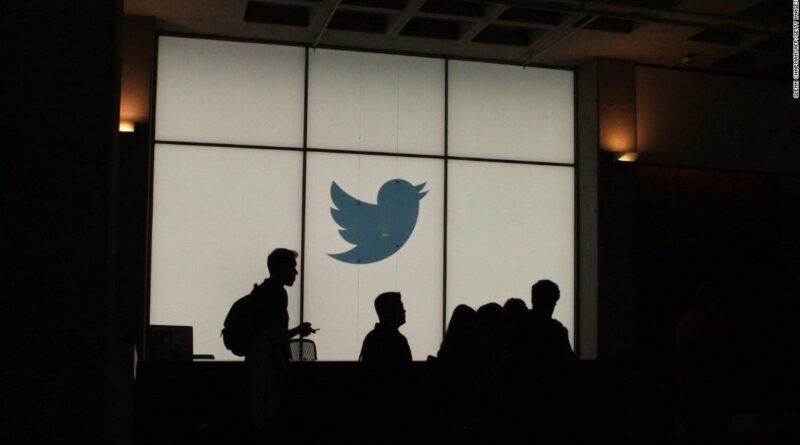Elon Musk calls for 'free speech' on Twitter
New York (CNN Business)A version of this article first appeared in the “Reliable Sources” newsletter. You can sign up for free right here.
Ask ten tech insiders about the future of Twitter right now and you’re likely to hear at least five different answers.
Some are dismissing Elon Musk’s $54.20 per share bid to take the company private. Others are taking it very seriously and predicting Musk will prevail. Still others are salivating as they watch from afar. “Well, this could be entertaining,” the WSJ’s editorial board opined Thursday night.
When I put the future-of-Twitter question to fellow CNN+ host Scott Galloway, he said “I don’t think this is a serious offer and the market doesn’t think this is a serious offer,” noting that the stock closed down 1.7% on Thursday. Galloway called Musk’s move a “false flag.” He said “the market has interpreted this, and I think correctly, as, ‘I’m about to sell my shares,’ and as a result,” the stock price slipped. (You can watch our full CNN+ special report here.)
Some other analysts were equally skeptical on Thursday. But Michael Nathanson of MoffettNathanson said he would urge Twitter “to take this offer and run,” citing the company’s many business challenges. And financial journalist and former banker William D. Cohan said the anti-Musk takes were all wrong: Twitter “is toast,” he wrote for Puck. “The job for the Twitter board will be to do whatever it can do — which isn’t much — to make the best deal with Musk that it possibly can. And it will do that. And Twitter will be sold to Elon Musk. That’s the way the world works. His price is fair and there will be no higher bidder. That is unless Musk flakes, and walks away, which he’s been known to do.”
What will Twitter’s board say?
BY CLARE DUFFY:
It’s a strong enough offer that Twitter’s board has a responsibility to seriously consider it, and CEO Parag Agrawal is said to have told employees that the evaluation process is still ongoing, according to reporting by The Verge and others. The board could reject the offer or put in place defensive mechanisms that could force Musk to the negotiating table. Musk could also make what’s called a tender offer to buy shares en masse directly from shareholders. And another potential buyer could emerge from the woodwork. In any case, there’s going to be more chaos surrounding the company in the coming days. More here…
>> Related: Casey Newton’s thought at the end of the day: “I have no idea who is going to own Twitter when all is said and done. But I worry that events of the next weeks and months are going to be bad for the company, and the product…”
>> Alex Heath’s prediction: “We are about to see a messy takeover battle play out between Twitter, Musk, and potentially others…”
Has Musk really thought this through?!
BY BRIAN FUNG:
On stage at the TED Conference on Thursday, Musk framed his offer to buy Twitter in the same “civilizational” terms that he describes Tesla’s mission: “This is not a way to make money …. having a public platform that is maximally trusted and broadly inclusive is extremely important to the future of civilization.” Here are two notes after listening to his remarks:
>> Musk said he wants Twitter to open-source its algorithm so that users can see when (and by implication, why) the platform takes action on their content. But it’s not clear how much this would achieve, given that it would still be up to the company to actually implement any changes people suggest, assuming (and that’s a big if) it is even possible for the average person to really unpack how the algorithm actually works…
>> It’s striking how little Musk seems to have thought about the hard cases on speech. His suggestions basically amount to 1) non-promotion of controversial tweets and 2) more use of temporary suspensions, which are tweaks by degree, not “civilizational” change. There are legions of academics and advocates and lawyers who are expert in the complexities of speech and speech moderation, and Musk is riffing as if he’s engaging on these hypotheticals for the first time and lands on the cop-out, “I’m not saying we have all the answers.” Instead, Musk would prefer that all the hard cases be resolved by applying the easy rubric of “does someone hate this speech? Then it must be free!” Which is an enormous oversimplification of the realities of speech…
“Conservatives embrace Elon Musk as their Twitter savior”
That’s the headline atop this Politico story, which perfectly reflects right-wing media’s coverage right now. When I glanced over at Fox’s “The Five,” the banner took Musk’s POV as fact, stating “MUSK TRYING TO SAVE FREE SPEECH WITH TWITTER BID.” Later in the day, Tucker Carlson commented on the air, “Is it sad that we’re all desperate for Elon Musk to save us? Yes it is. But who else is going to save us? Nobody, at this point.” For a snapshot of the right’s thinking on this matter, check out this Elle Reynolds column at The Federalist…
Further reading
— For subscribers of The Information, Jessica Toonkel and Martin Peers detailed the people deciding Twitter’s fate: It is “likely to be determined by a small circle of people,” including Saudi Prince Alwaleed bin Talal and Silver Lake chief Egon Durban… (The Information)
— Kara Swisher says “it’s hard to know what someone like Musk will do at any time.” (NYT)
— Christine Emba wrote: “What does it mean when a billionaire can almost single-handedly swoop in and eat up this sort of communications platform? The easy answer is nothing good…” (WaPo)
— Early Twitter investor Fred Wilson: “Twitter is too important to be owned and controlled by a single person. The opposite should be happening. Twitter should be decentralized as a protocol that powers an ecosystem of communication products and services…” (Twitter)
— Of note: “Asset manager Vanguard Group recently upped its stake” in Twitter and now owns 10.3%, meaning Musk is no longer the top shareholder… (WSJ)
One more note about Twitter…
Conservative writer David French’s view is that Musk is trying to buy a broken website. Twitter is relatively small, “disproportionately influential with the political elite, and distorts both the right and the left in deeply destructive ways,” French writes in his latest newsletter for The Atlantic. The platform definitely “punches well above its traffic in raw cultural impact,” but, French argues, that cultural influence “is harmful to both sides of America’s partisan divide.”
Naturally, his point is best summed up in a tweet: “Lots of folks have a hate/need relationship with Twitter. They hate the social dynamics, but they feel like they still need to reach their peers and their followers. If it gets more toxic, hate will override need…”
Source: Read Full Article

















































































